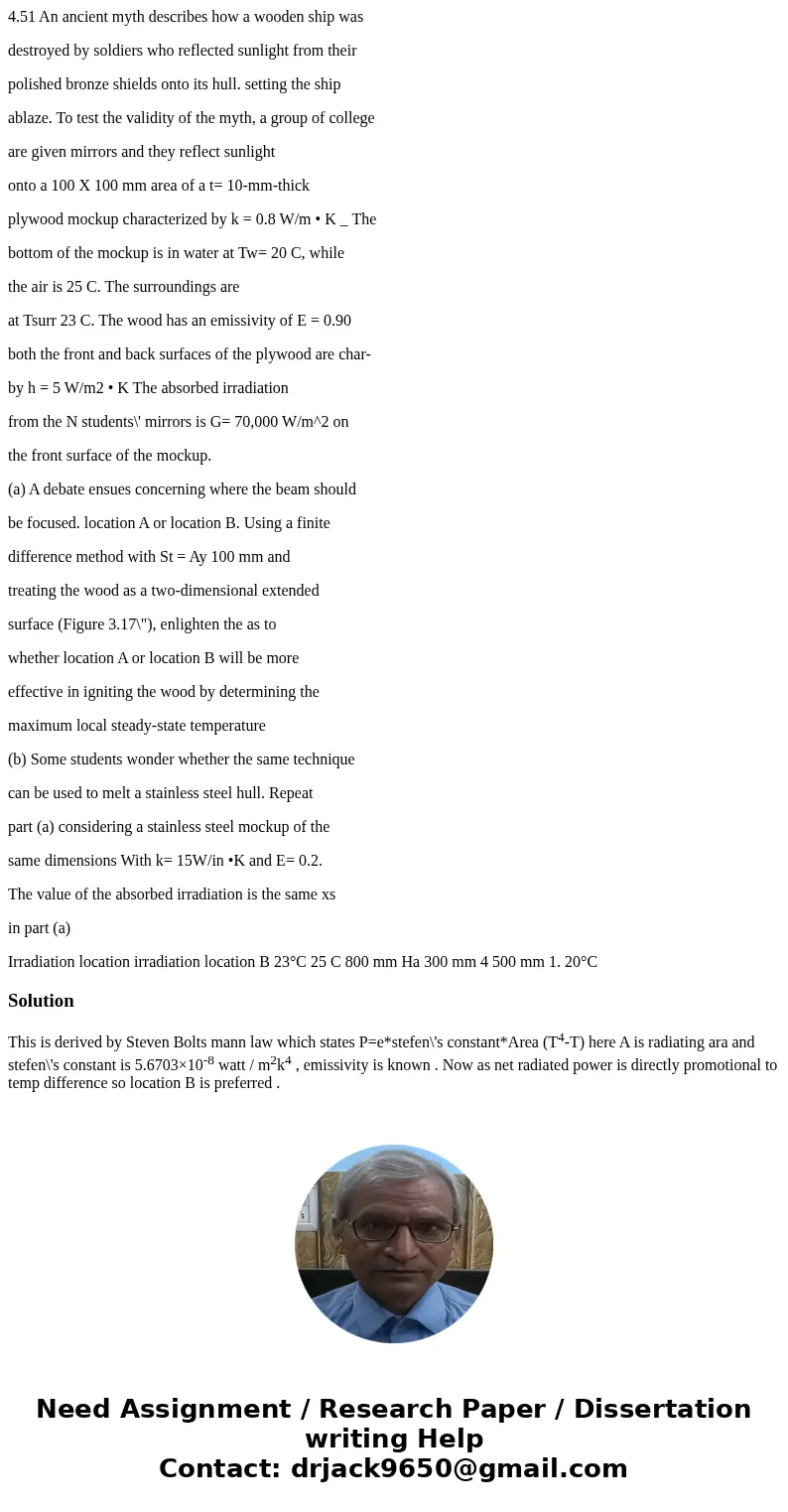451 An ancient myth describes how a wooden ship was destroye
4.51 An ancient myth describes how a wooden ship was
destroyed by soldiers who reflected sunlight from their
polished bronze shields onto its hull. setting the ship
ablaze. To test the validity of the myth, a group of college
are given mirrors and they reflect sunlight
onto a 100 X 100 mm area of a t= 10-mm-thick
plywood mockup characterized by k = 0.8 W/m • K _ The
bottom of the mockup is in water at Tw= 20 C, while
the air is 25 C. The surroundings are
at Tsurr 23 C. The wood has an emissivity of E = 0.90
both the front and back surfaces of the plywood are char-
by h = 5 W/m2 • K The absorbed irradiation
from the N students\' mirrors is G= 70,000 W/m^2 on
the front surface of the mockup.
(a) A debate ensues concerning where the beam should
be focused. location A or location B. Using a finite
difference method with St = Ay 100 mm and
treating the wood as a two-dimensional extended
surface (Figure 3.17\"), enlighten the as to
whether location A or location B will be more
effective in igniting the wood by determining the
maximum local steady-state temperature
(b) Some students wonder whether the same technique
can be used to melt a stainless steel hull. Repeat
part (a) considering a stainless steel mockup of the
same dimensions With k= 15W/in •K and E= 0.2.
The value of the absorbed irradiation is the same xs
in part (a)
Irradiation location irradiation location B 23°C 25 C 800 mm Ha 300 mm 4 500 mm 1. 20°CSolution
This is derived by Steven Bolts mann law which states P=e*stefen\'s constant*Area (T4-T) here A is radiating ara and stefen\'s constant is 5.6703×10-8 watt / m2k4 , emissivity is known . Now as net radiated power is directly promotional to temp difference so location B is preferred .

 Homework Sourse
Homework Sourse